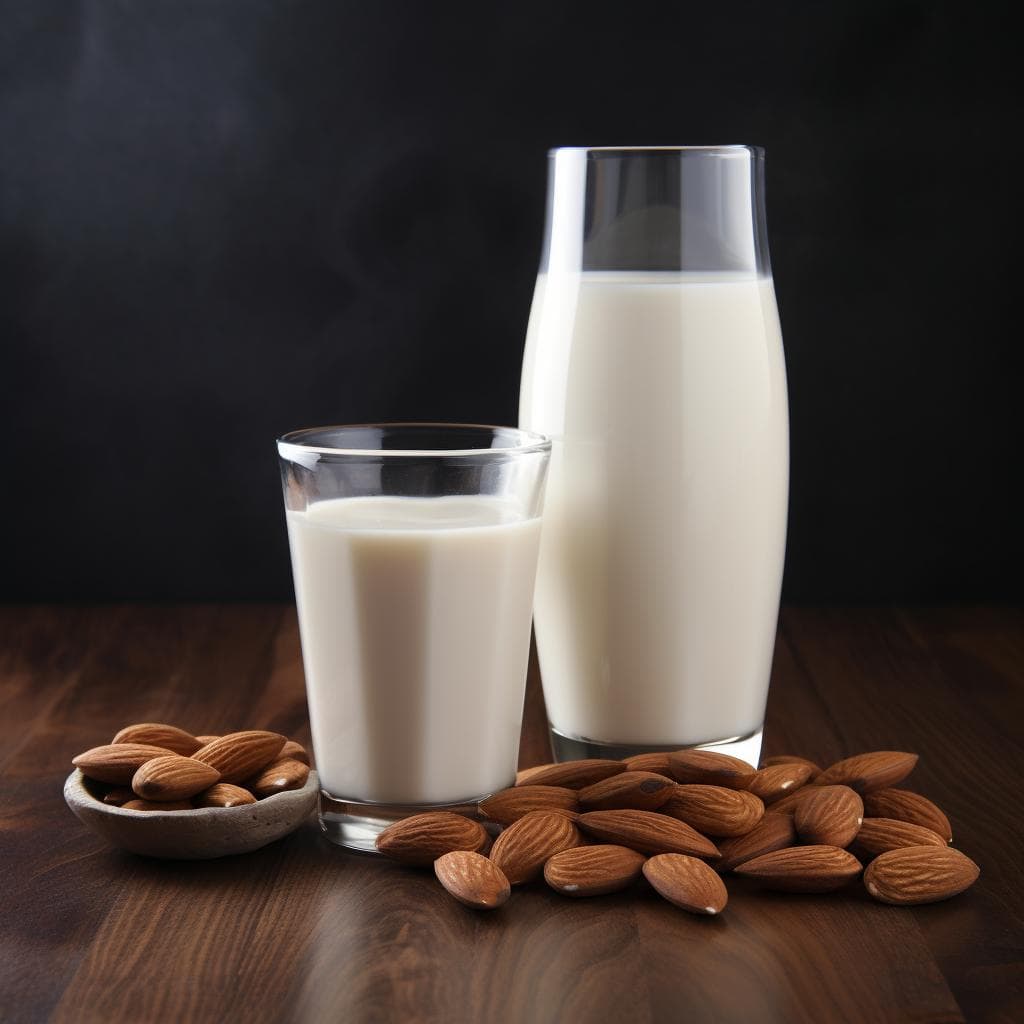When it comes to choosing a milk option, many individuals consider factors such as taste, nutritional content, and dietary restrictions. Digestibility is another crucial aspect that often goes overlooked. In this article, we will explore the digestibility of cow milk and almond milk, two popular choices among consumers.
Introduction
Digestibility plays a significant role in determining how well our bodies break down and absorb nutrients from the foods we consume. When it comes to milk, the ease with which our bodies can digest it can make a significant difference in our overall well-being. Let's delve into the differences between cow milk and almond milk in terms of their composition, benefits, and potential challenges.
Composition of Cow Milk
Cow milk is a staple in many households worldwide. Its composition consists of proteins, including casein and whey, carbohydrates in the form of lactose, fats, minerals, and vitamins. The complex structure of cow milk proteins can pose digestion challenges for some individuals, particularly those who are lactose intolerant or have allergies.
Composition of Almond Milk
Almond milk, on the other hand, is a plant-based milk alternative made from almonds and water. It typically contains fewer ingredients and is often fortified with vitamins and minerals to enhance its nutritional profile. The simplicity of almond milk's composition may contribute to its ease of digestion for certain individuals.
Lactose Intolerance and Digestibility
Lactose intolerance is a common condition in which the body lacks sufficient amounts of lactase, an enzyme necessary for breaking down lactose, the sugar found in cow milk. For those with lactose intolerance, consuming cow milk can lead to digestive issues such as bloating, gas, and diarrhea. Almond milk, being naturally lactose-free, is a suitable option for individuals with lactose intolerance as it does not contain this sugar.
Digestive Benefits of Almond Milk
Apart from being lactose-free, almond milk offers additional digestive benefits. Its lighter consistency and composition make it easier on the stomach compared to cow milk. This aspect can be particularly beneficial for individuals with sensitive digestive systems or those who experience discomfort after consuming cow milk.
Digestive Challenges of Cow Milk
While cow milk provides nutrients such as protein and calcium, it can pose digestive challenges for many individuals. The complex proteins found in cow milk, especially casein, can be difficult to digest, leading to gastrointestinal discomfort. Additionally, the high fat content in whole milk can contribute to digestive issues, especially for those with conditions such as gastritis or acid reflux.
Nutrient Absorption and Digestive Health
Proper nutrient absorption is vital for overall digestive health. The difficulties associated with digesting certain components of cow milk, such as proteins and fats, can hinder the absorption of essential nutrients. Almond milk, with its simpler composition, may offer better nutrient absorption and support digestive health in individuals who struggle with cow milk digestion.
Allergies and Sensitivities
Cow milk protein allergy is a distinct condition that differs from lactose intolerance. It occurs when the immune system reacts to certain proteins in cow milk, triggering allergic symptoms. Almond milk, being plant-based and free from cow milk proteins, serves as an excellent alternative for individuals with cow milk allergies or sensitivities.
Gut Microbiome and Digestibility
The gut microbiome, composed of trillions of microorganisms residing in our digestive tract, plays a crucial role in digestion and overall health. The consumption of cow milk has been associated with alterations in the gut microbiome, potentially affecting digestive function. On the other hand, almond milk, with its simpler composition, may have a less disruptive impact on the gut microbiome, promoting better digestion.
Impact of Processing on Digestibility
The processing methods employed in producing both cow milk and almond milk can influence their digestibility. Cow milk often undergoes pasteurization and homogenization processes, which can alter the structure and composition of its components, potentially affecting digestion. Almond milk, typically made through grinding almonds and water, undergoes minimal processing, preserving its natural composition and potentially enhancing digestibility.
Personal Factors and Digestive Response
It's important to acknowledge that individual factors play a significant role in determining how well one digests different types of milk. Factors such as genetics, gut health, and personal tolerance levels can influence how one's body responds to cow milk or almond milk. Experimenting with both options and listening to your body's signals can help determine which milk alternative is easier to digest for you.
Conclusion
When it comes to ease of digestion, almond milk has the upper hand over cow milk for many individuals. Its lactose-free nature, simpler composition, and potential benefits for gut health make it a suitable choice for those seeking a milk alternative that is gentler on the stomach. However, individual differences and personal preferences should be taken into account when deciding which milk option works best for you.
FAQs
Are almond milk and cow milk equally nutritious?
Though almond milk is often fortified with vitamins and minerals, cow milk naturally provides a broader range of nutrients such as protein, calcium, and B vitamins.
Can I still get enough calcium from almond milk?
Calcium fortification in almond milk makes it a viable source of this essential mineral. However, it is important to ensure a varied diet to meet calcium needs.
Does almond milk taste like cow milk?
Almond milk has its distinct flavor, which some individuals find enjoyable. It has a subtle nutty taste that is not quite comparable to the flavor of cow milk.
Can I use almond milk as a substitute for cow milk in cooking and baking?
Yes, almond milk can generally be used as a substitute for cow milk in various recipes. However, it may alter the taste and texture of certain dishes.
Are there any potential allergic reactions to almond milk?
While almond milk is generally well-tolerated, individuals with nut allergies should exercise caution and consult with a healthcare professional before consuming almond milk.




